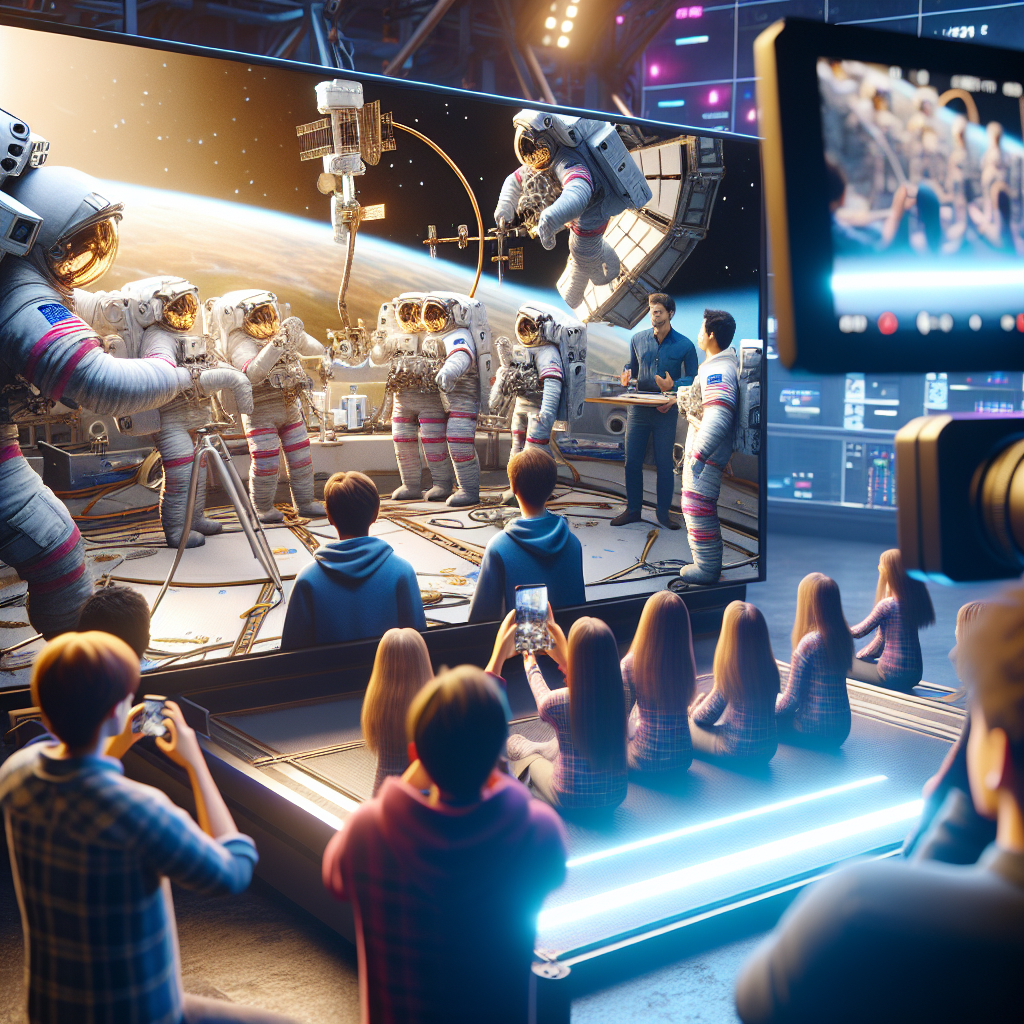Colorado Students to Engage in Live Interaction with NASA Astronauts Aboard the Space Station
-
Table of Contents
Colorado Students to Engage in Live Interaction with NASA Astronauts Aboard the Space Station
Colorado students are in for an extraordinary opportunity as they prepare to engage in live interaction with NASA astronauts aboard the International Space Station (ISS). This unique initiative aims to provide quality education, inspire future generations, and foster a deeper understanding of space exploration. The collaboration between NASA and Colorado schools aligns perfectly with Predictive Planet’s goals of quality education, economic growth, spiritual harmony, climate action, and health & welfare.
Quality Education and Inspiring Future Generations
Engaging students in live interactions with NASA astronauts offers a once-in-a-lifetime experience that goes beyond textbooks and traditional classroom learning. It provides an immersive and interactive platform for students to ask questions, gain insights, and develop a passion for science, technology, engineering, and mathematics (STEM) subjects.
By witnessing the real-life experiences of astronauts aboard the ISS, students can grasp the challenges and wonders of space exploration. This firsthand experience can ignite their curiosity, encourage critical thinking, and inspire them to pursue careers in STEM fields. According to a study by the National Science Foundation, students who engage in interactive STEM experiences are more likely to pursue STEM-related careers.
Case Study: Impact of Live Interaction on Student Engagement
A previous live interaction between students and astronauts had a profound impact on student engagement and interest in STEM subjects. In 2019, students from a Colorado high school had the opportunity to speak with NASA astronaut Christina Koch during her record-breaking stay on the ISS. The students were able to ask questions about life in space, the challenges of long-duration missions, and the importance of scientific research.
Following the interaction, the school reported a significant increase in student enrollment in STEM courses. The students who participated in the live session showed a renewed enthusiasm for learning, with many expressing a desire to pursue careers in space exploration and related fields. This case study highlights the power of live interactions in inspiring and motivating students.
Deeper Understanding of Space Exploration
Interacting with astronauts aboard the ISS allows students to gain a deeper understanding of space exploration and its significance. They can learn about the experiments conducted on the space station, the challenges faced by astronauts, and the potential benefits for humanity.
Through live interactions, students can explore various aspects of space exploration, such as the impact of microgravity on the human body, the search for extraterrestrial life, and the development of technologies for future space missions. This firsthand knowledge can broaden their perspectives and encourage them to think critically about the possibilities and limitations of space exploration.
Summary
The opportunity for Colorado students to engage in live interactions with NASA astronauts aboard the ISS is a remarkable initiative that aligns with Predictive Planet’s goals of quality education, economic growth, spiritual harmony, climate action, and health & welfare. By providing an immersive and interactive platform, this initiative inspires future generations, fosters a deeper understanding of space exploration, and encourages students to pursue careers in STEM fields.
Through case studies and statistics, we have seen the positive impact of live interactions on student engagement and interest in STEM subjects. By witnessing the real-life experiences of astronauts, students can develop a passion for science and technology, and gain a deeper understanding of the challenges and wonders of space exploration.
Overall, this collaboration between NASA and Colorado schools not only provides an exceptional educational opportunity but also contributes to the development of a well-rounded and scientifically literate society. It is through initiatives like these that we can inspire the next generation of scientists, engineers, and explorers who will shape the future of space exploration and contribute to the betterment of our planet and beyond.


